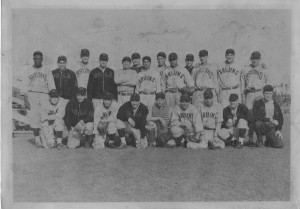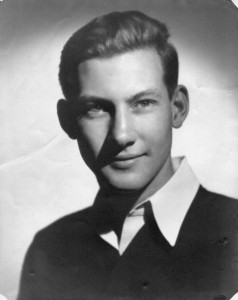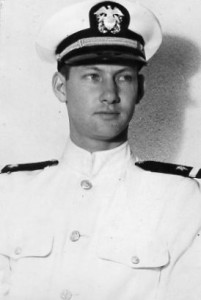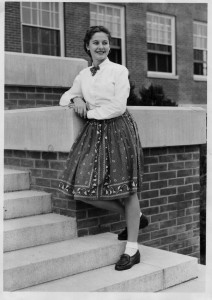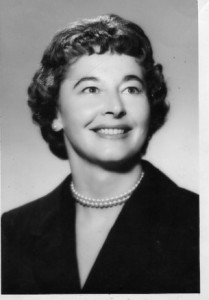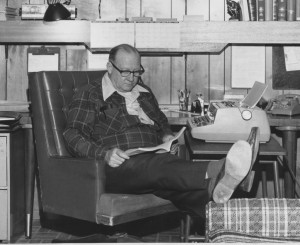Her name was Susan and we were in the third grade. I saw her for the first time on the playground. She had blonde hair that was almost white, and eyes as blue as a slice of sky laid atop God’s light table.
She looked at me and I felt actual heat in my chest.
Remember that scene in The Godfather where Michael Corleone, hiding out in Sicily, sees Appolonia for the first time? His two friends notice the look on his face and tell him, “I think you got hit by the thunder bolt!”
When it happens to us at eight years old, we don’t exactly have a metaphor for it, but that’s what it was––the thunder bolt. Love at first sight!
I remember the ache I felt the rest of the day. My life had changed, divided into two periods (admittedly of not too lengthy duration)—before Susan and after Susan.
Now what? Having no experience with love, I wondered what the next step was supposed to be. How did love work itself out when your mom was packing your lunches and your allowance was twenty-five cents a week?
I’d seen The Adventures of Robin Hood with Errol Flynn. He climbed up the vines to Maid Marian’s balcony. Was that a plan? Not in Woodland Hills, California, a suburb of mostly one-story, ranch-style homes. Clearly, the balcony strategy was out.
I had also seen the 1938 version of Tom Sawyer(I was getting most of my life lessons from movies and Classics Illustrated comic books) and was enamored of his love for Becky Thatcher. And what had Tom done to impress Becky? Why, he showed off, of course.
There was my answer. I would show off in front of Susan.
What was I good at? Kickball. Athletic prowess would be my ticket into Susan’s heart. So out on the playground I made my voice loud and clear when I came up for my kicks. Susan was usually nearby playing foursquare.
And every now and then we’d make eye contact. That’s when I’d kick that stupid ball all the way to the fence.
Yet I was shy, afraid to talk to her directly. I mean, what was I going to say? Want to see my baseball cards, baby? How about joining me for a Jell-O at lunch? Hey, that nurse’s office is really something, isn’t it?
Flummoxed, I thought of Susan for weeks without ever exchanging a word with her. She had no problem with that, it seemed. But she knew I liked her. The rumor mill at school was a fast and efficient communication system. Which only made me more embarrassed.
I considered running away and joining the circus, but my parents were against it.
Then one day circumstances coalesced and the stars aligned.
School was out and kids were heading for the gates to walk home or get picked up. I usually went out the front gate. Susan went out the back, and this day I fell in with that company and quickened my pace to get next to her. Heart pounding, I said something suave like, “Hi.” I don’t recall that she said anything, but at once I found we were side by side, walking down the street.
I started talking about our teacher, Mr. McMahon, who was tall and imposing and a strict disciplinarian (thus, in hallways and safely out on the playground, we referred to him, in whispered tones, as “Mr. McMonster.”)
Susan said nothing. I started to get more confident. Maybe, just maybe, she was interested in what I had to say. And maybe, just maybe, oh hope of all hopes, she actually liked me back.
All of that showing off was about to pay dividends!
And then came one of those moments you never forget, that scorch your memory banks and leave a permanent burn mark. Susan turned to me and spoke for the first time. And this is what she said:
“Just because I’m walking with you doesn’t mean you’re my boyfriend.”
It was the way she said boyfriend that did it. It dripped with derision and perhaps a bit of mockery. If I could have found a gopher hole I would have dived in, hoping for a giant subterranean rodent to eat me up and end my shame.
This all happened fifty years ago, yet I can still see it, hear it and feel it as if it were last week.
Is that not why some of us are writers? To create scenes that burn like that, with vividness and emotion, rendering life’s moments in such a way as to let others experience them?
Even if it’s “only entertainment,” the emotional connection that takes us out of ourselves is something we need. “In a world of so much pain and fear and cruelty,” writes Dean Koontz in How to Write Best Selling Fiction, “it is noble to provide a few hours of escape.” And the way into that escapism is to create emotional moments that are real and vibrant and sometimes even life-altering.
The best way to do that is to tap into our own emotional past andtranslate moments for fictional purposes. Like an actor who uses emotion memory to become a character, we can take the feelings we’ve felt and put them into the characters we create on the page.
Thus, Susan was part of my becoming who I am and how I write.
So Susan, my first love, wherever you are, thank you. Maybe I wasn’t your boyfriend, but you taught me what it’s like to love and lose. I can use that. All of life is material!
I hope you’re well. I hope you’ve found true and lasting love, like I have. I want you to know I hold you no ill will.
But always remember this: I’m still the best kickball player you ever saw.


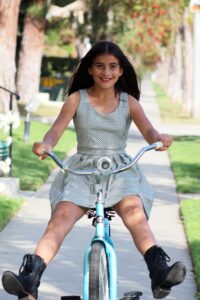
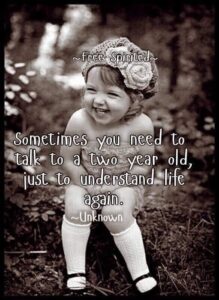








 We often talk about a character’s backstory, including a “wound” that haunts as a “ghost” in the present. It’s a solid device, giving a character interesting and mysterious subtext at the beginning. The wound is revealed later as an explanation. (Think of Rick in Casablanca. “I stick my neck out for nobody” and his casual using of women. The wound of Ilsa’s “betrayal” doesn’t become clear until the midpoint).
We often talk about a character’s backstory, including a “wound” that haunts as a “ghost” in the present. It’s a solid device, giving a character interesting and mysterious subtext at the beginning. The wound is revealed later as an explanation. (Think of Rick in Casablanca. “I stick my neck out for nobody” and his casual using of women. The wound of Ilsa’s “betrayal” doesn’t become clear until the midpoint).